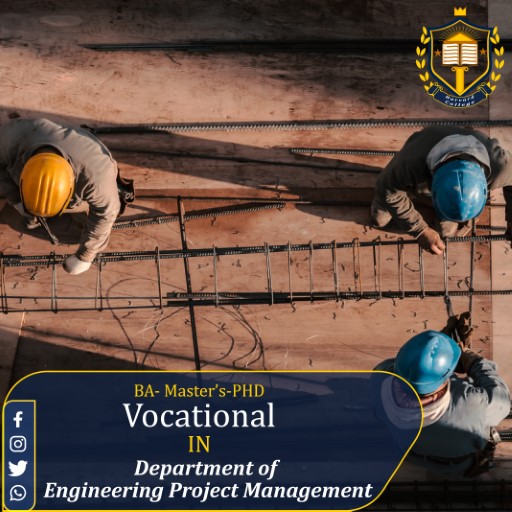Department of Engineering Project Management

اتصل بنا عبر البريد الإلكتروني على info@oxfordcollage.uk أو أرسل استفسارًا تجاريًا عبر الإنترنت.
who should attend?
Engineers in all disciplines
Engineering Project Managers
Officials of the Engineering Management Department of the Institutions
Anyone involved in engineering project management
For individuals seeking to run their own engineering projects
Who seeks to enter the field of project management
Individuals with professional, engineering and educational backgrounds
objective
This program aims to provide individuals with the skills, information and basic principles of engineering project management. Applying high professional standards to the field of engineering management and full of aspects of project management from start to finish
content
Subjects included in the curriculum
1. Engineering Project Management:
This course studies the utility, design and management of competitive projects in engineering, including the application of zero-result analysis, ambiguous decisions, decision trees, random models, risks versus benefits, and insight explores the balance between the human and technical aspects of project management.
2- Engineering systems simulation:
This course explains methods for developing, implementing and applying computer simulations of management and engineering processes, evaluation and follow-up of projects, equipment errors, risk analysis and expectations.
It covers common errors in simulations, forecasting, data analysis, evaluation and use of forecasts, and simulations of data acquisition processes
3. Measuring devices:
This course deals with more modern approaches to increasing process efficiency, production rate and quality through the use of devices and process technology improvement.
It explores process devices and monitoring tasks in order to effectively solve the industry’s most common problems with smart devices and the resulting developments in power and miniaturization.
4. Total Quality Management:
This course discusses how quality can be achieved in all aspects of an organization, including design, production, marketing, and customer and employee service.
This course also examines how companies work on how to generate value through quality. And in how decisions are made in capacity, facilities, and technology
5- Mechanization management:
This course provides a process perspective for technology, automation, and innovation strategy development. And technology life cycle. And the Research and Development Department. And individuals and enterprises to teach how to integrate technology and automation in developing the competitiveness and technological capacity of the company.
6- Industrial Process Development Department:
This course focuses on the technical skills and teamwork necessary to achieve quality in the process. It deals with the concept of quality,
Improvement cycle and quality tools. Eliminate complexity at work. The implementation of quality in processes, activities and organizations and also handles statistical monitoring in the processes used to ensure conformity of specifications and product quality
7. Operations Management:
The course provides an analytical approach to solving production and process management problems. It also examines quantitative methods of designing, analyzing and simulating manufacturing processes as well as other topics on production, as well as paying attention to current techniques to improve the competition
Looking for higher education, at the postgraduate level (Master’s, Professional Doctorate) ?

